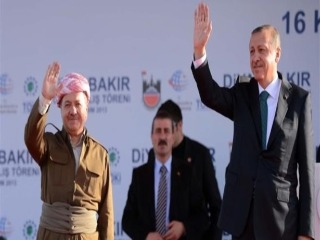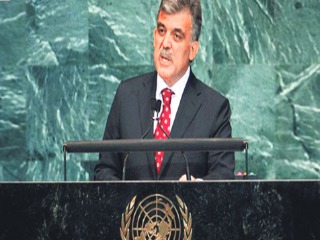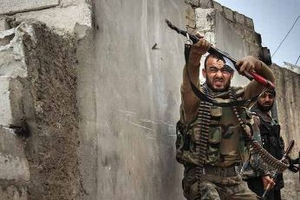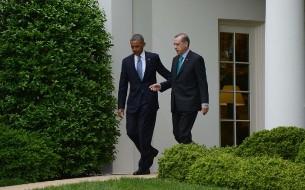The New Oil Game in Mesopotamia
By Kemal Kaya (vo. 6, no. 21 of the Turkey Analyst)
Petro-politics fuels the evolving relationship between Ankara, Erbil and Baghdad. At the heart of the new oil game in Mesopotamia is the question of how the oil from the territory of the Kurdistan Regional Government (KRG) is going to be transported to the world markets. Turkey’s strategic position – and its economy – is set to be strengthened as it taps into the oil riches of Iraqi Kurdistan and as it realizes its ambition to be a major regional oil hub.

Is Turkey going to reconsider its Sunni sectarian policy in Syria?
By Halil M. Karaveli (vol. 6, no. 17 of the Turkey Analyst)
Turkey may not yet be ready to reexamine its Syria policy and to acknowledge that it bears a share of the responsibility for the present state of affairs in Syria. The official Turkish narrative is that things in Syria would have been much different if only the “moderates”, “the ones who are working for democracy” that Turkey has supported had been assisted by the United States. What Turkey needs to do in response to the growing security threat that Syria represents is to make sure that the impression that Turkey is committed to promoting a sectarian, Arab Sunni cause in Syria is dispelled. President Gül’s statement that Turkey is making a “significant effort” to remove the jihadist threat on its border is a hopeful sign.

The Arab-Kurdish Battle in Syria: Implications for Turkey's Standing
by Veysel Ayhan (vol. 6, no. 4 of the Turkey Analyst)
The battle over the Syrian town Ras al-Ain on the border to Turkey and the recent cease-fire agreement between the Syrian opposition and the Kurdish Democratic Union party (PYD) have major implications for Turkey, affecting its relations with the Kurds in Syria, and with parts of the opposition. The battle over Ras al-Ain has not only resulted in the Kurds seeing Turkey as their enemy, but has also led some Syrian opposition leaders to question the role that Turkey plays in their country. The standing of Turkey has been negatively affected as the notion that Turkey could be of assistance in ending the intensified ethnic, religious or sectarian strife that can be expected after the downfall of al-Assad has been dealt a blow at Ras al-Ain.

Turkey and Syria’s Jihadis: More than Free Passage?
by Murad Batal al-Shishani (vol. 6, no. 10 of the Turkey Analyst)
On February 20, 2013, Syrian rebels and the Kurdish militia—which had fought each other for months in a town near the Turkish border—agreed to a ceasefire. Ras al-Ain is an ethnically mixed town of Arabs, Kurds, Armenians, Chechens, and so on. In the past few months, the town has become a theatre playing out Turkey’s fears concerning the ongoing crisis in Syria, its role and the relationship with various armed groups there, including jihadists. In addition to its close relations with the Free Syrian Army (FSA), Turkey has supported local jihadist groups in Ras al-Ain, while it appears to have proven unable to control or open links with the most influential jihadist group, al-Nusra.

Erdogan-Obama Differences over Syria Downplayed at Washington Summit
by Richard Weitz (vol. 6, no. 10 of the Turkey Analyst)
At their joint White House news conference, Turkish Prime Minister Recep Tayyip Erdoğan and President Barack Obama stressed their common desire to avert the use of chemical weapons in Syria, end the fighting through a peaceful transition to a post-Assad government, and prevent Syria from becoming a terrorist haven or the emergence of an autonomous Kurdish or threat to Syria’s territorial integrity. Yet, neither Turkey nor the United States is prepared to make substantial exertions to achieve these objectives, making it more likely that the Syrian civil war will continue to threaten regional stability, their relationship, and their other interests. Although analogies are never perfect, the Syrian situation resembles several similarly bad situations of recent years, with extremely negative implications for Ankara and Washington.






